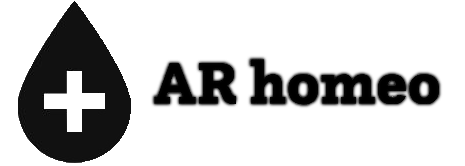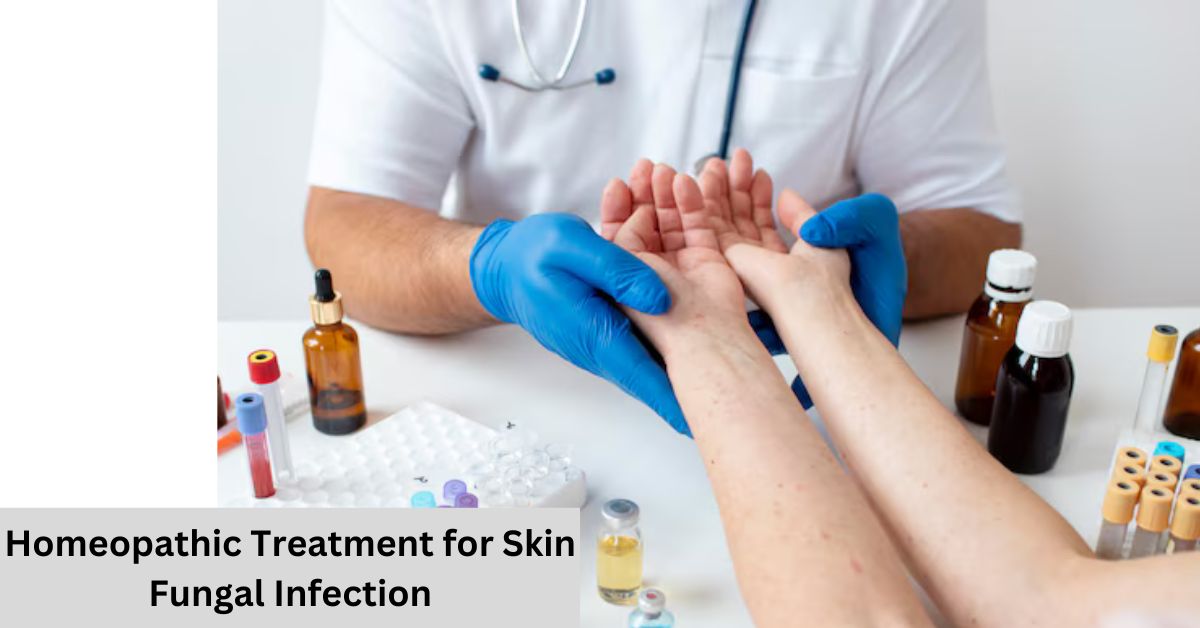Skin fungal infections, including athlete’s foot, ringworm, and candidiasis, are common and often cause itching, redness, and discomfort. Traditional treatments typically involve antifungal medications or creams, but homeopathy offers an alternative method. Homeopathy is based on the principle of “like cures like,” using highly diluted remedies to encourage the body’s natural healing abilities. Instead of just alleviating symptoms, homeopathic treatments focus on addressing the root causes of fungal infections. This approach provides a holistic and individualized solution, potentially leading to effective relief and enhanced overall health. Understanding how to select and use homeopathic remedies can be crucial for managing and resolving skin fungal infections.
Symptoms of Skin Fungal Infections
Key symptoms of skin fungal infections include:
Itching and Redness: It is typical to experience persistent itching and red, irritated skin.
Scaling and Peeling: Affected areas may have patches that are dry, flaky, or scaly.
Round Lesions: Round, red spots with raised, scaly edges are a common ringworm presentation.
Cracking and Swelling: Fissures and swelling between the toes might be a symptom of athlete’s foot.
Pain and Burning: The impacted regions may experience pain or burn.
White Patches: On mucous membranes or inflammatory skin areas, candidiasis may cause white, creamy patches.
How Homeopathy Works
Based on the idea of “like cures like,” homeopathy employs highly diluted chemicals to:
Principle of Similarity: The selection of remedies is predicated on how closely the patient’s symptoms resemble those that the remedy would produce in a healthy individual.
Highly Diluted Remedies: Ingredients are diluted to extremely low quantities in an effort to maximize their therapeutic effects without generating negative side effects.
Holistic Approach: The full person is taken into account during treatment, including both physical and emotional problems.
Individualization: Treatment plans are customized based on the unique symptoms and general health of each patient.
Stimulating Vital power: The goal of homeopathy is to encourage self-healing by stimulating the body’s vital power.
Homeopathic Remedies for Fungal Infections
Homeopathic remedies for fungal infections target various symptoms and types of infections. Key remedies include:
Sulfur: Frequently applied to burning and itchy sensations, especially on rough, dry skin.
Graphites: Good for infections causing oozing, broken skin and thick, sticky discharge.
Natrum Muriaticum: Applied to infections exhibiting scaly, dry areas and a propensity for skin peeling.
Thuja Occidentalis: Good for warty growth-producing fungal infections or infections that don’t go away with medication.
Arsenicum Album: Assists with achy, burning, and a chilly sensation in the affected area.
Diet and Lifestyle Recommendations
Diet and lifestyle adjustments can support the treatment and prevention of skin fungal infections:
Maintain Hygiene: Keep the skin clean and dry. Regularly wash affected areas and ensure they are thoroughly dried, especially between toes.
Avoid Tight Clothing: Wear loose, breathable fabrics to reduce moisture and friction on the skin.
Choose Antifungal Foods: Incorporate garlic, ginger, and turmeric into your diet, as they have natural antifungal properties.
Limit Sugar Intake: Reduce consumption of sugary foods, which can promote fungal growth.
Stay Hydrated: Drink plenty of water to support overall skin health and detoxification.
Use Natural Products: Opt for natural, fragrance-free skin care products to avoid irritation.
Potential Side Effects and Interactions
Due to the great dilution of the remedies, potential negative effects of homeopathic therapies for cutaneous fungal infections are often infrequent and moderate. Some people may notice a brief worsening of their symptoms; this is an indication that the treatment is beginning to work. Usually temporary, this initial deterioration is a necessary component of the healing process.Due to the remedies’ great dilution, interactions with other prescriptions are unlikely; however, it is always crucial to let your healthcare professional know about all of the therapies you are taking. This aids in avoiding any unanticipated problems. By ensuring that the remedy is appropriate for your health and usage, speaking with a certified homeopath helps to reduce the possibility of negative side effects.
Common types of fungal infections
A variety of bodily parts can be impacted by fungal infections. Athlete’s foot is a frequent kind that affects the feet and produces peeling, redness, and itching, especially between the toes. Another common illness is ringworm, which causes red, scaly areas of skin that resemble rings on the skin. Intense itching and redness are caused by jock itch, which affects the groin area. Candida infections, like yeast infections or oral thrush, are common in moist locations like the mouth and genitalia. They frequently cause itching and white patches. Nail fungal infections, often known as onychomycosis, cause the nails to become brittle, thicken, and discolored. For a resolution to be effective, each category needs to be treated differently.
Guidelines for choosing the right potency and dosage
In homeopathy, the individual’s symptoms as well as general health must be carefully considered while selecting the appropriate potency and dosage. The term “potency” describes the remedy’s strength, which is usually represented by a number and a “X” or “C” (for example, 6X or 30C). Higher potencies, like 30C, may be selected for persistent problems or more profound emotional and mental symptoms, whilst lower potencies, like 6X, are frequently utilized for acute disorders or physical symptoms.
The severity of the ailment determines how often a dose should be taken; acute problems may demand more frequent doses, whilst chronic conditions may need less frequent delivery. A qualified homeopath should be consulted in order to choose the right remedy, potency, and dose for your individual circumstances.
Foods and habits that support skin health
Good eating choices and healthy behaviors go hand in hand in maintaining healthy skin. Water consumption is essential for hydrating the skin and eliminating pollutants. Including foods high in antioxidants, such berries and leafy greens, can help shield the skin from harm. Avocados, almonds, and seafood are good sources of healthy fats that help maintain the hydration and suppleness of skin. You may avoid skin problems and keep your complexion clear by limiting your intake of processed and sugary meals. Regular physical exercise combined with moderate skincare regimens and products encourages healthy circulation and a glowing appearance. The health of your skin can also benefit from stress management practices like exercise and meditation.
Hygiene and lifestyle tips to prevent recurrence
Adopting healthy lifestyle choices and practicing proper cleanliness are crucial for preventing the recurrence of skin fungal infections. Dryness and cleanliness are always important since moisture encourages the growth of fungi. Choose breathable, moisture-wicking materials when changing your socks and underwear on a daily basis. Don’t share shoes or towels or other personal items. Clean surfaces that come into contact with skin on a regular basis, such gym equipment and restroom floors. Drink enough water and eat a balanced diet to boost your immune system. Utilize stress reduction strategies because stress might impair immunity. By implementing these suggestions, you can lower your chance of recurrent fungal infections and promote general skin health.
FAQ
FAQ for Homeopathic Treatment for Skin Fungal Infection:
Q: How does homeopathy treat skin fungal infections?
A: Homeopathy uses highly diluted remedies based on the principle of “like cures like” to stimulate the body’s natural healing processes. Remedies are chosen to match the individual’s symptoms and overall health.
Q: Are homeopathic remedies effective for fungal infections?
A: Many people find relief with homeopathy, but effectiveness can vary. Remedies target the root cause of the infection and may provide a holistic approach to treatment.
Q: How should I choose a homeopathic remedy?
A: Remedies should be selected based on specific symptoms and overall health. Consulting with a professional homeopath is recommended for personalized treatment.
Q: Are there any side effects?
A: Side effects are rare due to the high dilution of remedies. Some individuals may experience a temporary worsening of symptoms.
Q: Can homeopathic remedies interact with other medications?
A: Homeopathic remedies generally have minimal interactions with conventional medications, but it’s important to inform your healthcare provider about all treatments.
Conclusion
Skin fungal infections can be treated with homeopathy, which provides a customized and all-encompassing method of recovery. Homeopathy attempts to activate the body’s own healing mechanisms by employing highly diluted medicines customized to a patient’s individual symptoms and general state of health. Although this approach works for many, it’s important to get advice from a qualified homeopath as outcomes may differ. It is possible to improve outcomes and avoid recurrence by combining homeopathic treatment with good hygiene and lifestyle changes. In order to guarantee a safe and well-coordinated strategy to controlling skin fungal infections, always let your healthcare professional know about all the therapies you are taking.

